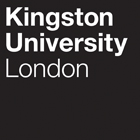- Home
- Search
- Social Studies
- University of Cambridge
- MPhil in Criminological Research
Course options
-
Qualification
MPhil - Master of Philosophy
-
Location
University of Cambridge
-
Study mode
Full time
-
Start date
01-OCT-25
-
Duration
12 months
Course summary
The basic aims of both MPhil programmes are:
- to offer up-to-date and high-quality degree courses, introducing students to some of the most important theory, methods and research in criminology;
- to offer a sound academic foundation to those who aspire to undertake a PhD and/or a career in teaching and research in criminology or related fields; and
- to provide a sound foundation of knowledge and methodological skills to those who wish to work in a wide range of criminal justice agencies, the legal profession, or other professional or voluntary organisations.
The MPhil in Criminological Research provides a foundational education in prominent criminological theories, research methods, and areas of criminological knowledge. Compulsory modules on criminological theories and research methods familiarise students with historic and contemporary criminological thinking and research. A variety of optional seminars are on offer each year covering a wide range of criminological topics. What is on offer varies by year, but in recent years has included topics such as criminal justice, policing, crime prevention, organised crime, the sociology of punishment, the sociology of prison life, psychiatry and crime, developmental criminology, neurocriminology, social contexts of crime, and cross-cultural comparative criminology.
Students should acquire: an understanding of core criminological and criminal justice theories; a critical awareness of current problems and debates within the field; originality in application of knowledge to current issues; and skills in critical evaluation of theoretical and empirical literature relevant to criminological and criminal justice research; a comprehensive understanding of qualitative and quantitative research methods used in criminology; the ability to use acquired knowledge to propose new hypotheses and address research problems; the ability to organise research; the ability to independently acquire and interpret additional knowledge needed for their own research; and an understanding of the quality of work required to satisfy peer review; the ability to use national data banks and develop competencies in devising and implementing surveys, active mastery of advanced statistics; the ability to use a range of qualitative methods such as interviews, observation and ethnography, and documentary and discourse analysis, and the ability to apply those research techniques to current research questions and the ability to use theoretical knowledge creatively and independently in order to be able to handle practical issues arising in empirical work; to understand the problems of knowledge transfer to non-specialist audiences, and develop skills in communicating criminological knowledge to specialist and non-specialist audiences.
Application deadline
26 March 2024
Modules
Tuition fees
- Hong Kong
- Afghanistan
- Albania
- Algeria
- Andorra
- Angola
- Antigua & Barbuda
- Argentina
- Armenia
- Australia
- Austria
- Azerbaijan
- Bahamas
- Bahrain
- Bangladesh
- Barbados
- Belarus
- Belgium
- Belize
- Benin
- Bhutan
- Bolivia
- Bosnia and Herzegovina
- Botswana
- Brazil
- Brunei
- Bulgaria
- Burkina Faso
- Burma
- Burundi
- Cabo Verde
- Cambodia
- Cameroon
- Canada
- Central African Republic
- Chad
- Chile
- China
- Colombia
- Comoros
- Congo
- Congo (Democratic Republic)
- Costa Rica
- Croatia
- Cuba
- Curacao
- Cyprus
- Czech Republic
- Denmark
- Djibouti
- Dominica
- Dominican Republic
- East Timor
- Ecuador
- Egypt
- El Salvador
- England
- Equatorial Guinea
- Eritrea
- Estonia
- Ethiopia
- Fiji
- Finland
- France
- Gabon
- Gambia
- Georgia
- Germany
- Ghana
- Greece
- Grenada
- Guatemala
- Guinea
- Guinea-Bissau
- Guyana
- Haiti
- Honduras
- Hungary
- Iceland
- India
- Indonesia
- Iran
- Iraq
- Israel
- Italy
- Ivory Coast
- Jamaica
- Japan
- Jordan
- Kazakhstan
- Kenya
- Kiribati
- Korea DPR (North Korea)
- Kosovo
- Kuwait
- Kyrgyzstan
- Laos
- Latvia
- Lebanon
- Lesotho
- Liberia
- Libya
- Liechtenstein
- Lithuania
- Luxembourg
- Macedonia
- Madagascar
- Malawi
- Malaysia
- Maldives
- Mali
- Malta
- Marshall Islands
- Mauritania
- Mauritius
- Mexico
- Micronesia
- Moldova
- Monaco
- Mongolia
- Montenegro
- Morocco
- Mozambique
- Namibia
- Nauru
- Nepal
- Netherlands
- New Zealand
- Nicaragua
- Niger
- Nigeria
- Northern Ireland
- Norway
- Oman
- Pakistan
- Palau
- Palestinian Authority
- Panama
- Papua New Guinea
- Paraguay
- Peru
- Philippines
- Poland
- Portugal
- Puerto Rico
- Qatar
- Republic of Ireland
- Romania
- Russia
- Rwanda
- San Marino
- Sao Tome and Principe
- Saudi Arabia
- Scotland
- Senegal
- Serbia
- Seychelles
- Sierra Leone
- Singapore
- Slovakia
- Slovenia
- Solomon Islands
- Somalia
- South Africa
- South Korea
- South Sudan
- Spain
- Sri Lanka
- St Vincent
- St. Kitts & Nevis
- St. Lucia
- Sudan
- Suriname
- Swaziland
- Sweden
- Switzerland
- Syria
- Taiwan
- Tajikistan
- Tanzania
- Thailand
- Togo
- Tonga
- Trinidad & Tobago
- Tunisia
- Turkey
- Turkmenistan
- Tuvalu
- UAE
- Uganda
- Ukraine
- United Kingdom
- United States
- Uruguay
- Uzbekistan
- Vanuatu
- Vatican City
- Venezuela
- Vietnam
- Wales
- Western Samoa
- Yemen
- Zambia
- Zimbabwe
£ 31,860per year
Tuition fees shown are for indicative purposes and may vary. Please check with the institution for most up to date details.
University information
-
University League Table
1st
-
Campus address
University of Cambridge, The Old Schools, Trinity Lane, Cambridge, Cambridgeshire, CB2 1TN, England
Subject rankings
-
Subject ranking
1st out of 101
-
Entry standards
/ Max 206195 95%2nd
-
Graduate prospects
/ Max 10091.0 91%1st
-
Student satisfaction
/ Max 4n/a





